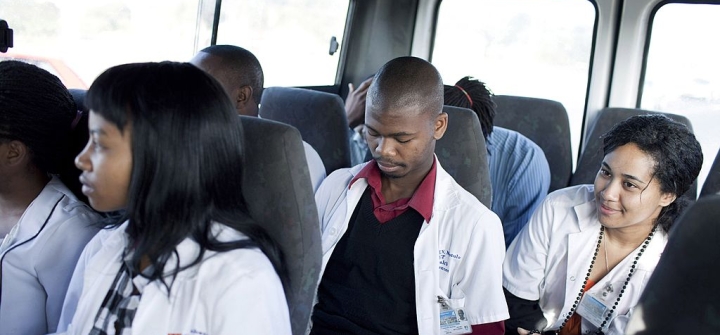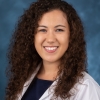Fortify the Frontlines with Fellowships for LMIC Docs
Equity, availability, access. All words we use to describe efforts to decolonize health systems around the world. But is this applied to academics, particularly global health fellowships?
A review of applicant websites suggests no. Many state: “must be a U.S. citizen to apply."
Most global health fellowships in the U.S. fall outside the purview of the Accreditation Council for Graduate Medical Education review and set their own curriculum and guidelines; no other governing body regulates them. Yet, despite having full jurisdiction of their programs, when examining acceptance criteria for global health fellowships in the U.S., most do not include physicians from low- and middle-income countries.
Why, with all the focus on decolonization recently, are post-residency global health academics left behind? The likely answer is that there are many challenges to accepting LMIC physicians into the programs—including income limitations, visa challenges, differing curricula based on physician location, language, and cultural practicing barriers.
But apart from these challenges, institutions in wealthier countries could offer more opportunities—and make the applicant process more accessible for LMIC candidates. A review found only 15 published articles discussing five programs that clearly stated inclusion or fellow recognition of LMIC physicians in U.S. based global health fellowships. A companion web search arrived at similar numbers, with just five of 108 programs listed online stating eligibility of acceptance for LMIC physicians as of 2022.
Currently, the reality is that global health fellowships are limited mainly to U.S. physicians—a clear example of how systemic barriers can limit access to opportunities and perpetuate inequality. While U.S. physicians are certainly talented and capable, there are many skilled physicians in LMICs who could also benefit from these fellowships and contribute to the global health community. And, expanding inclusion would benefit everyone greatly.
Consider the opportunities:
- Research strengthened by diverse contributors.
- Innovative ideas from those who practice in low-resource settings.
- Improved cultural humility and breaking down of biases.
- Training for doctors who are more likely to practice within their home country—recognizing that LMICs will achieve and maintain sustainability when their workforces are local, well-trained, and receive multilateral support.
Every country—especially those most vulnerable to climate change, natural disasters, mass migration, and changing infection patterns—needs strong, knowledgeable leaders to swiftly respond to these challenges. Providing more fellowship opportunities will fortify the frontlines—improving health security across the globe in the process.
How can we change this? In a McGill Journal of Global Health article, Fujimura and Yalda Jabbarpour propose some solutions:
- Fund LMIC physicians through grants, or having clinically generated funds, which already go towards U.S. fellowship salaries, contribute to a stipend.
- Expand university opportunities to be held in other countries and make online curricula available to all.
- Provide translators when necessary and incorporate training in cultural humility and biases to benefit all participants.
- Allow for the distinction of “honorary fellow” for LMIC physicians that take part in what components they can, or who contribute to the training of those visiting their home country.
The above changes would need to be made through university and program administrators, when planning curriculum, logistics, and funding for their programs. They would also need to work in close conjunction with their LMIC partners to find balanced opportunities in education, research, etc.
It’s important to acknowledge that opening up more fellowship opportunities to LMICs will be costly and require addressing logistical and financial challenges, such as visa requirements and funding for travel and living expenses. However, the benefits of diversifying the global health workforce and promoting collaboration across borders to address these challenges will be worth the effort.
Rebecca Fujimura, MD is a physician with Contra Costa/ UCSF Global Health Fellowship. She won an honorable mention in the Untold Global Health Stories Contest of 2023, sponsored by the Consortium of Universities for Global Health along with GHN.
Arlene Mugisha, MBBS is a physician at Village Health Works in Burundi.
Joelle Bukeneza, MBBS, is a physician at Village Health Works in Burundi.
Join the 50,000+ subscribers in 170+ countries who rely on Global Health NOW summaries and exclusive articles for the latest public health news. Sign up for our free weekday newsletter, and please share the link with friends and colleagues.
Medical students travel on a bus to GF Jooste hospital on October 20, 2010, Cape Town, South Africa. Per-Anders Pettersson/Getty







